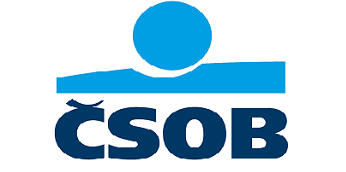
Effective accounting procedures are essential for the success of the trucking business, which is important to the worldwide economy. The four fundamental components of expert trucking accounting are examined in this article. Trucking companies can guarantee compliance and streamline operations with proper record-keeping. They can manage their finances and make wise decisions thanks to effective income and spending tracking. Cash flow management can maintain operations, and future plans are aided. These foundations can help transportation companies succeed in a cutthroat market.
What is Professional Trucking Accounting?
To manage financial transactions and maintain regulatory compliance, the trucking sector uses specialized accounting practices and principles called professional trucking accounting. It entails keeping thorough records of earnings and outlays, keeping tabs on where the money comes from and where it goes, controlling cash flow, and abiding by industry-specific tax regulations. Professional trucker accounting aids in maintaining organization, assisting with financial decision-making, and enhancing profitability. Businesses may successfully manage their financial health, satisfy regulatory standards, and make long-term plans by implementing professional trucking accounting practices.
Basics of Professional Trucking Accounting
The following are the basics of professional trucking accounting:
● Maintaining Accurate Records
Accurate record-keeping is a crucial component of expert trucking accounting. It entails methodically cataloging and setting up different banking transactions and operational details. Records include mileage logs, fuel invoices, maintenance documents, and invoices that trucking companies must maintain. Trucking accounting services can improve their financial management, make wise judgments, and show accountability by meticulously capturing and organizing financial data.
Maintaining accurate records helps to track revenue and expenses, ensures transparency, and makes it possible to comply with rules and regulations. Electronic instruments and software development have increased the efficiency and dependability of maintaining correct records.
● Managing Cash Flow
Money movement into and out of a trucking company is called cash flow. Effective cash flow management requires monitoring and analyzing the incoming and outgoing cash flows to ensure enough money available to cover costs and continue operations. The precise tracking of customer payments, costs, and other cash inflows and outflows is essential for trucking companies.
Cash flow can be optimized through timely billing, rapid collection, and managing unforeseen expenses. Trucking companies may fulfill their financial commitments, invest in expansion prospects, and stay stable during economic downturns by maintaining a good cash flow.
● Tax Compliance and Planning
Professional transportation accounting must include tax planning and compliance. Trucking companies must comprehend and meet their tax requirements to prevent fines and legal troubles. It includes adhering to regulations particular to the sector, like fuel and heavy vehicle use fees. To operate legally, trucking companies must file the proper tax returns and accurately record their income.
Additionally, tax planning tactics can help maximize deductions and minimize tax payments, improving the business’s financial situation. Consulting with tax experts and consultants can assure compliance, offer insightful advice, and maximize tax advantages for the trucking industry.
● Revenue and Expense Tracking
The revenue streams of trucking companies, including freight costs, ancillary fees, and any other sources of income, must be tracked. Businesses can assess their financial performance, spot opportunities for cost or revenue reduction, and allocate resources wisely with the help of outsourced bookkeeping services. It entails tracking and categorizing revenue streams and outlays methodically within the trucking industry.
They must also carefully monitor and keep track of various expenses, including those for gasoline, maintenance, repairs, insurance, and personnel compensation. The tracking procedure can be streamlined using accounting software and tools, providing precise and current financial information for efficient management.
Conclusion
Expert transportation accounting forms the foundation of the sector’s financial performance. The core procedures provide long-term stability, risk mitigation, and informed decision-making. Trucking companies will be better equipped to deal with obstacles, take advantage of opportunities, and prosper in a dynamic and cutthroat business environment if they embrace these fundamentals and keep up with changing accounting practices.

 The Importance of Information Technology Support in Carlsbad: Reliable IT Support Solutions for Local Businesses
The Importance of Information Technology Support in Carlsbad: Reliable IT Support Solutions for Local Businesses  How to Find the Right Engagement Ring Style for You at Lily Arkwright
How to Find the Right Engagement Ring Style for You at Lily Arkwright  Why Businesses Worldwide Prefer to Hire Web Developers from India
Why Businesses Worldwide Prefer to Hire Web Developers from India  Creating Unforgettable Catering Experiences: The Secret Sauce of Celebrations
Creating Unforgettable Catering Experiences: The Secret Sauce of Celebrations 


